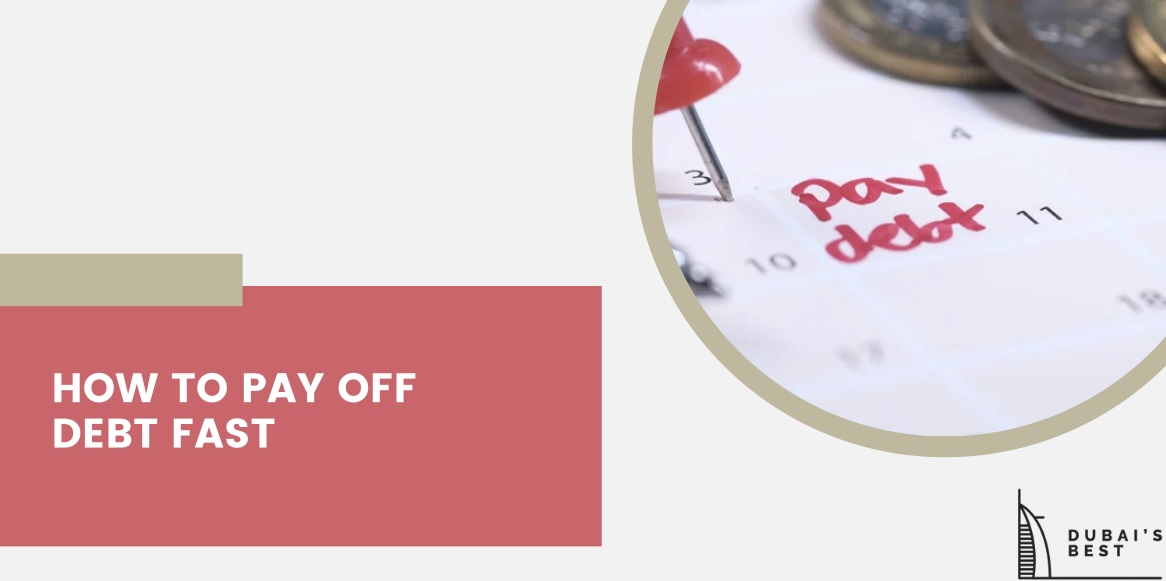How to Pay Off Debt Fast
While having debt is frustrating, there are things that you can do about it.
These tips will help ease the pain of paying back such a large amount of money and allow you to focus on other facets of your life.
Figure out your budget
First, have all your debt information gathered, and figure out how much money you will be able to put toward your debt on a regular basis.
Determine how much money is coming in and going out each month.
This means that you need to know how your paychecks are broken down into taxes and other deductions and all of the places your money goes each month.
You should record every expense for a few months to have a thorough picture of where your money goes.
Having an envelope system—separate cash for food, fun, and clothing—can help with keeping this simple. This will also give you an idea of areas where you can cut back on spending if necessary.
Reduce your spending
As with any change in lifestyle, it’s important to approach the process with a realistic, patient, and focused plan. At the heart of this plan is cutting back on unnecessary spending.
Start by making a list of everything you spend money on each month, from rent to insurance to entertainment.
Then go through each expense. Ask yourself if you really need it or if it’s just a habit or something your parents did when you were young, and old habits are hard to break.
Stop using your credit cards
When you’re buried in debt, you need to do something to get yourself out. But in a desperate attempt to dig yourself out of the hole, you may be tempted to use credit cards as a way out.
If you’re using your credit card to pay off your debt, you’re essentially paying for things with more debt. This will only hurt your overall financial situation, and it won’t help you get out of debt at all.
The best way to stop using your credit cards is to stop carrying them with you. If you tend to reach for your credit card at the grocery store, leave the cards at home and take just the amount of money you need for groceries.
If you’re afraid that you’ll forget to pay your bill on time, set up automatic payments so that you don’t incur late fees.
Find a side hustle
While there are many ways to boost your income, one of the easiest and quickest ways is to take on a side hustle. A side hustle can be anything from selling your stuff online to taking on a second job.
It can also mean freelancing or starting a business. You may also start trading or investing and make your money work for you, but only risk what you’re willing to lose.
Whatever it is, make sure you have the time and energy to do it. You don’t want your side gig cutting into sleep time or family time.
Finding a side gig that works for you will take some trial and error, so don’t despair if the first thing you try doesn’t work out as planned. Just keep trying until you find something that meets your needs and hopefully even gets you excited.
The extra money from your side gig must go toward paying off debt instead of adding more spending money to your budget. So once you start seeing an increase in income, start chipping away at those bills!
Find a payoff method you’ll stick with
There are a few different ways to pay off debt, and the method you choose should depend on your financial situation. Here’s a breakdown:
- Snowball Method: You make minimum payments on all debts except the one with the lowest balance. Once it’s paid off, you move on to the next smallest amount and repeat until every debt is paid in full.
- Avalanche Method: You make minimum payments on all debts except the one with the highest interest rate. Once it’s paid off, you move on to the next highest interest rate and repeat until every debt is paid in full.
- Debt Consolidation: A consolidation loan combines your loans into one payment at a lower interest rate. This will decrease your monthly payment, but you’ll end up paying more in interest over time due to extending your repayment term.
- Debt Settlement: Your creditor agrees to accept less than what you owe as full payment of your account balance IF you can pay them a lump sum or increased monthly payments within a short period. This isn’t necessarily a good option because it could negatively impact your credit score, but it might be helpful if you’re facing foreclosure or bankruptcy.
Paying off your debt is essential for living a stress-free life. If you require assistance, you may also ask for the help of bookkeepers or accountants to help you with this.

